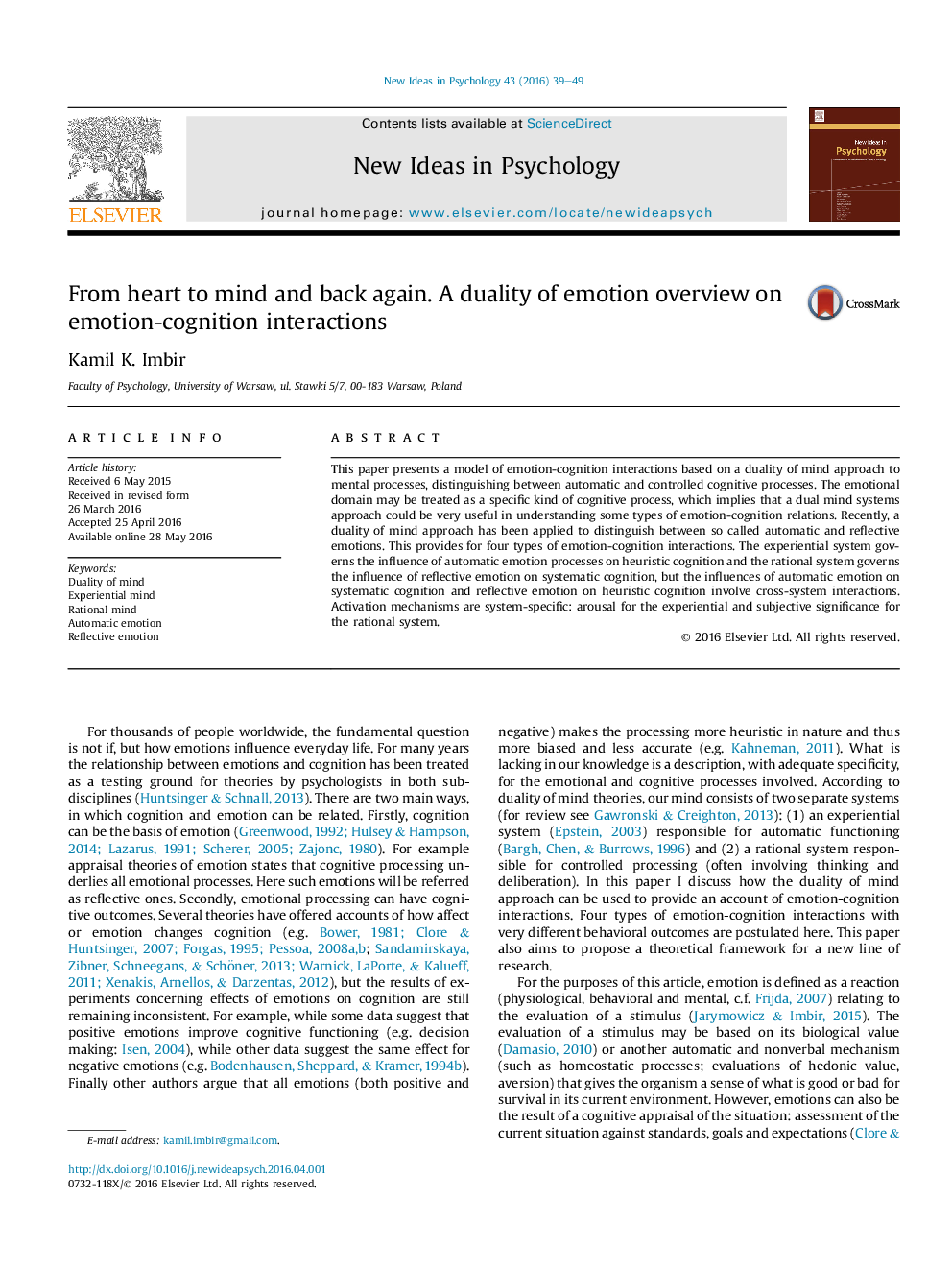| Article ID | Journal | Published Year | Pages | File Type |
|---|---|---|---|---|
| 331400 | New Ideas in Psychology | 2016 | 11 Pages |
•Mind consists of two different mental systems resulting in emotion and cognition.•Emotions and cognitions may be treated as two sides of one coin.•There are four possible meanings of the emotion-cognition relationship.•Activation mechanisms are specific to the mind system.•Arousal and significance mediate the emotion-cognition relationship.
This paper presents a model of emotion-cognition interactions based on a duality of mind approach to mental processes, distinguishing between automatic and controlled cognitive processes. The emotional domain may be treated as a specific kind of cognitive process, which implies that a dual mind systems approach could be very useful in understanding some types of emotion-cognition relations. Recently, a duality of mind approach has been applied to distinguish between so called automatic and reflective emotions. This provides for four types of emotion-cognition interactions. The experiential system governs the influence of automatic emotion processes on heuristic cognition and the rational system governs the influence of reflective emotion on systematic cognition, but the influences of automatic emotion on systematic cognition and reflective emotion on heuristic cognition involve cross-system interactions. Activation mechanisms are system-specific: arousal for the experiential and subjective significance for the rational system.
Graphical abstractFigure optionsDownload full-size imageDownload as PowerPoint slide
